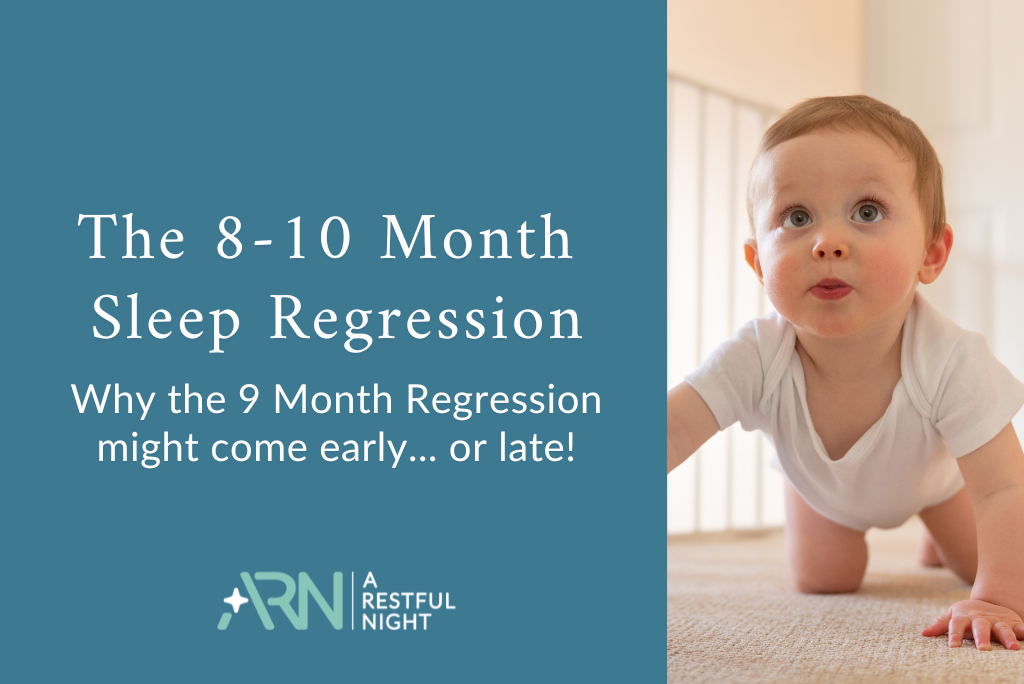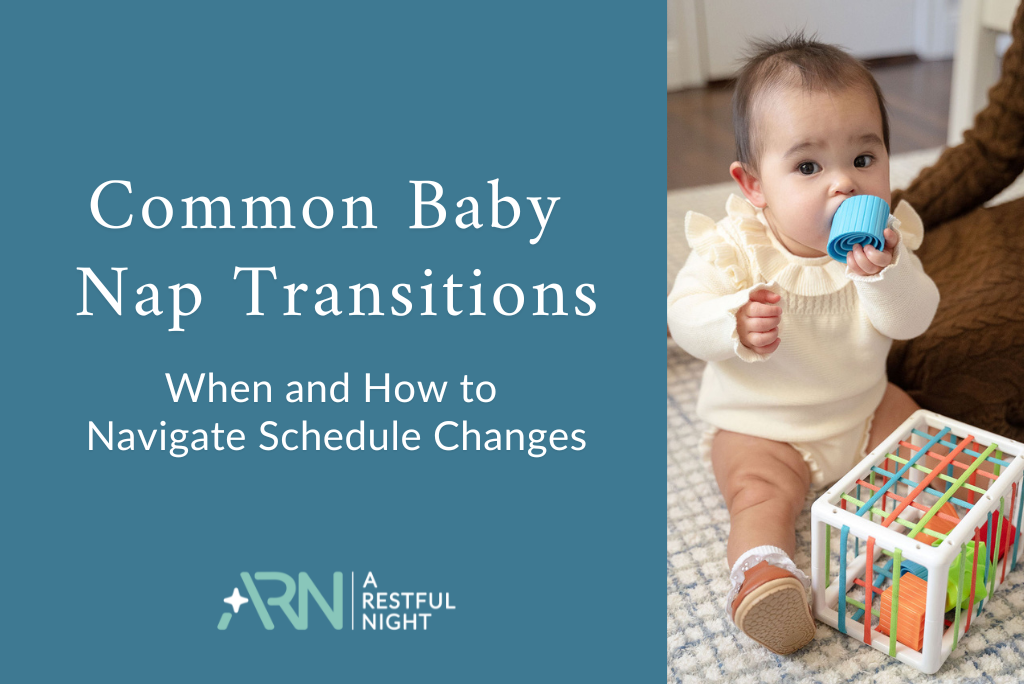Newborn Sleep Struggles: Fixing Day-Night Confusion for Better Baby Sleep
Parenting a newborn is challenging, especially when sleep seems impossible. If you're experiencing nights where your baby is wide awake while the world sleeps, you're not alone. I’ve been there – I can vividly remember looking at my husband when my youngest was two weeks old thinking “let’s send him back!” So I put this guide together to support you through the temporary challenge of newborn day-night confusion.
What is Day-Night Confusion in Newborns?
Newborns arrive in the world without an internal sense of time. Unlike adults, babies aren't born with a fully developed circadian rhythm - the internal clock that regulates sleep-wake cycles. This means your little one doesn't understand the difference between day and night. It’s why your newborn is wide awake at 3:00am and conked out at 11:00am!
Why Day-Night Confusion Happens
Understanding the reasons behind your baby's sleep patterns can help you approach this phase with patience and empathy. The journey begins with the developmental challenges newborns face in adapting to life outside the womb.
Developmental Challenges Creating Sleep Confusion
Your newborn's sleep patterns are deeply rooted in their recent experience of life before birth. During pregnancy, babies are rocked in utero all day long! Newborns become accustomed to a consistent, dark environment where they are gently rocked to sleep by your daily movements. The womb was a world of warmth and muffled sounds, where time had no meaning. Upon birth, they suddenly encounter a world of light, varying temperatures, and distinct day and night cycles - talk about a dramatic change!.
Biological immaturity plays a significant role in sleep confusion. The production of melatonin, the body’s sleep hormones, helps the body fall asleep and stay asleep! Melatonin doesn't begin being produced consistently until around 8-12 weeks of age. Without this crucial hormone, babies lack the internal mechanism that helps adults distinguish between day and night. Newborn sleep is governed more by hunger, comfort, and basic needs rather than an understanding of time.
Identifying Day-Night Confusion
Every parent wants to understand their baby's unique sleep patterns, but recognizing day-night confusion can feel like solving a complex game of tetris, blindfolded!. As your newborn adjusts, their sleep habits can seem completely unpredictable and overwhelming. Understanding the signs of day-night confusion is the first step in helping your baby develop a more consistent sleep routine.
Clear Signs of Sleep Pattern Disruption
Parents often recognize day-night confusion through consistent patterns of disrupted sleep. You might notice your baby sleeping for extended periods during daylight hours, then becoming particularly alert and active when you're hoping to rest. Nighttime becomes a series of short, fragmented sleep intervals, with frequent wakings and difficulty settling back to sleep. These patterns can leave parents feeling exhausted and overwhelmed, wondering if they'll ever experience a full night's rest again.
Gentle Strategies to Help Regulate Sleep
Establish a Daily Wake Time
Establishing a regular start to your day can help to organically establish daytime. Around 4 weeks old it can be helpful to establish a daily wake time – or a standard time you would like to start your day. Anchoring your morning at 7:00am and waking your child up will naturally establish a rhythm to your day and help make the evenings more manageable!
We have a complimentary newborn sleep schedule for you! Click below to get yours!
Daytime Approaches to Establishing Rhythm
Helping your baby develop a healthy sleep rhythm requires a consistent approach. During the day, create an environment that signals wakefulness and activity. Open curtains to allow natural light to fill the room, creating visual cues that distinguish daytime from nighttime. Engage with your baby through talking, singing, and normal household activities. These interactions help stimulate their senses and reinforce the idea that daytime is for being awake and interactive.
Monitor Nap Length During the Day
It can be tempting to let your newborn take a long extended nap during the day, but this can further fuel the day night confusion. During the newborn days naps are important but you should aim to cap your baby’s naps at 90 minutes on average so that you can ensure frequent, full feeds during the day and preserve the long stretches of sleep during the night.
Nighttime Strategies for Calm Sleep
As evening approaches, gradually transform your home's environment to signal sleep time. Dim the lights, reduce household noise, and create a calm, consistent atmosphere. Develop a soothing bedtime routine that helps your baby understand it's time to rest. Use soft voices during night feedings, keep interactions minimal and quiet, and consider using white noise to recreate a womb-like environment that promotes sleep.
When to Seek Professional Guidance
Navigating your newborn's sleep challenges can be overwhelming, and it's important to remember that you're not alone in this journey. While most sleep disruptions are normal, there are times when professional insight can provide much-needed reassurance and guidance.
Signs You Should Consult a Pediatrician
While day-night confusion is normal, there are times when professional guidance becomes important. If sleep disruptions persist beyond 10-12 weeks or if your baby seems consistently uncomfortable, it's wise to consult your pediatrician and/or a trusted sleep expert (like A Restful Night). Trust your parental instincts - if something feels off or you're experiencing significant stress, seeking support is a sign of strength, not weakness.
Consider Working with a Sleep Coach
Around 14 weeks is when my team and I officially begin taking on clients for our Two Week Full Support Program (which you can read more about here). In the meantime, there’s plenty we can work on together to help you ease into life with your new baby. At A Restful Night we offer 60 Minute Ask Me Anything calls catered to Newborn Parents, where we answer your burning questions and help lay the foundation for a lifetime of great sleep with your baby.
Supportive Reminders
This challenging phase is temporary. Every baby develops differently, and what works for one might not work the same for another. Your feelings of frustration are valid and normal. Parenting is a journey of love, patience, and continuous learning.
And, remember. If you need a little help along the way, that’s more than okay! Book a complimentary consultation call with me today, and we can plan your next steps together!
SCIENTIFIC REFERENCES
Tapia, I. E., & Deboer, T. (2015). Pediatric Sleep Physiology. Respiratory Care, 60(6), 823-835.
Lebourgeois, M. K., et al. (2013). Infant Sleep Rhythms and Environmental Influences. Journal of Sleep Research, 22(4), 437-444.
Meg O'Leary is an Infant and Child Sleep Expert and the founder of A Restful Night. Based in Westchester County, NY, she leads a team of certified sleep coaches to provide virtual support to families across the US and around the world.




